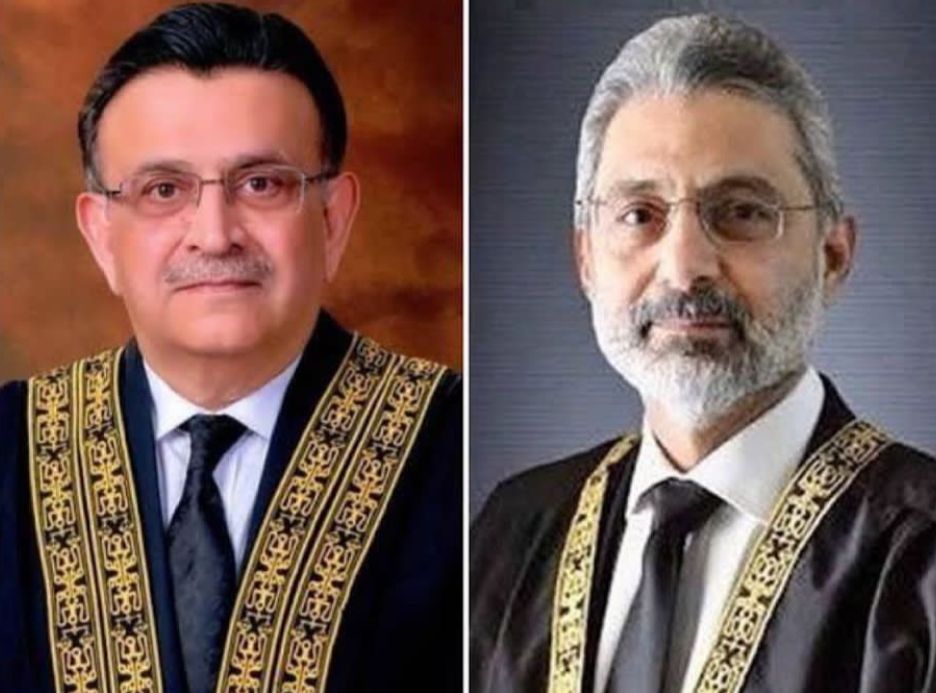In response to petitions challenging the trial of civilians in military courts under the Army Act, Chief Justice of Pakistan (CJP) Umar Ata Bandial has constituted a larger bench consisting of nine members, with himself as the head. The hearing is scheduled to take place on Thursday. The inclusion of Justice Qazi Faez Isa, who has been a prominent figure in legal matters, adds weight to the bench’s composition.
This development follows former Chief Justice Jawwad S Khawaja’s criticism of the government’s decision to conduct trials of individuals involved in the May 9 riots in military courts. Khawaja questioned whether civilian institutions, including the Supreme Court, should endorse the “militarization of justice.” In his petition, he expressed concern over the power and influence exerted by the military beyond its constitutional role, stating that the trial of civilians in military courts was indicative of such control.
Khawaja highlighted several issues with military court trials, asserting that they fail to meet international fair trial standards. The lack of a public hearing, the absence of reasoned judgments, the secrecy surrounding charges, and the non-disclosure of trial locations all contribute to a lack of transparency. He argued that trying civilians in military courts while civilian courts are operational is not only incompatible with the Constitution but also violates fundamental rights guaranteed to individuals.
The petitioner further emphasized that military courts lack the necessary impartiality and independence. As serving military officers with no legal training, security of tenure, or other prerequisites associated with judicial independence, the judges presiding over these courts are inherently biased. Additionally, all individuals involved in the court-martial process are part of and reliant on the executive branch from appointment until retirement, further compromising the integrity of the proceedings.
The opaque nature of military court trials is another cause for concern. These hearings are held in private and behind closed doors, devoid of public scrutiny. Section 93 of the Pakistan Army Act 1952 allows trials to be conducted in any location, further adding to the lack of transparency.
The formation of this nine-member bench signifies the gravity and complexity of the issue at hand. With the inclusion of distinguished justices and the former chief justice’s challenging questions, the larger bench will thoroughly examine the legality and constitutionality of the trial of civilians in military courts.


